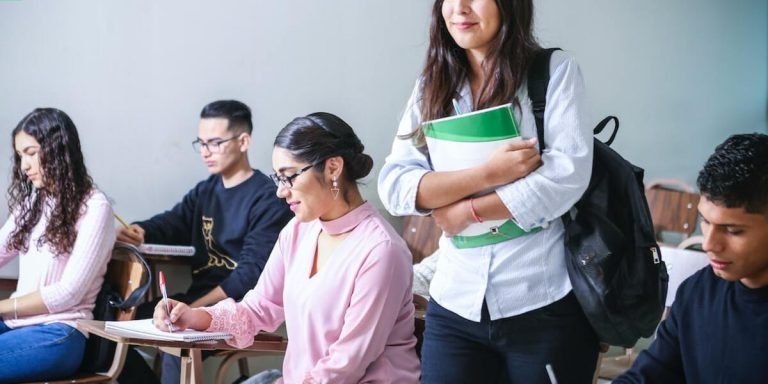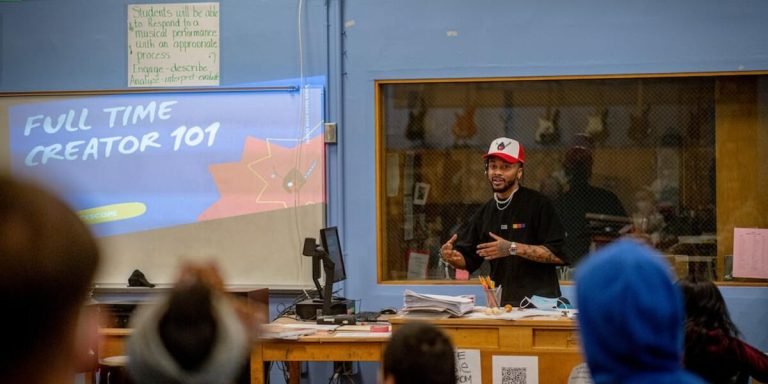Positive Parenting Solutions: Transformative Approaches to Improve Your Child’s Behavior
Navigating the intricacies of child behavior can prove tricky, elevating stress levels in both parents and educators. That’s where positive parenting solutions come into play as a beacon of guidance for those wanting to foster resilience, discipline, self-control and empathy within their children.
In this blog post, we will leap beyond traditional disciplinary measures that often fail to nip issues at the bud effectively. We’ll dive deep into positive parenting solutions – transformative strategies geared towards improving your child’s behavior fundamentally rather than temporarily quelling outbursts or misbehavior. This is about understanding what triggers certain behaviors in our youngsters and equipping them with skills they need now – and far into their adult lives.
Did you know?
Did you know that according to the American Psychological Association, positive parenting can increase a child’s self-esteem and academic competence while also decreasing risky behaviors like substance misuse in their later life?
Understanding Positive Parenting Solutions
Positive Parenting Solutions, an approach recognized worldwide for its effectiveness in fostering healthier parent-child relationships and child development. This method veers away from traditional punitive disciplinary measures. Instead, it encourages open communication, understanding emotions, and problem-solving strategies that enable children to become responsible decision-makers.
The concept of Positive Parenting Solutions in 2023 encompasses not just a means to correct misbehavior but aims at nurturing emotional health cognitively stimulating environments for the young mind’s holistic growth. As parents or educators navigating the developmental years of youngsters can be challenging; implementing positive parenting solutions offers practical tips reducing conflicts while instilling crucial life skills.
Adopting this parental style fosters respect between both parties involved – parents (or educators) guide their wards’ behavior while respecting their feelings simultaneously), supporting them with empathy rather than reprimands or punishment — a significant step towards raising independent thinkers who are empathetic by nature themselves. Ultimately creating an environment where they feel valued builds self-esteem which is essential for growing into balanced adults contributing positively to society’s fabric.
The Role of Emotional Intelligence in Effective Parenting
Emotional intelligence plays a significant part in the implementation of positive parenting solutions. It is crucial for both parents and educators to understand its role as it greatly influences how they guide children towards success.
Firstly, emotional intelligence can help parents better comprehend their child’s feelings. This insight promotes open communication leading to healthier relationships between parent and child. Parents who are emotionally intelligent have an advantage – they’re able to detect even subtle mood changes in their kids, allowing them early intervention if something seems amiss.
Secondly, understanding emotional signals enables rational problem-solving. Instead of getting caught up in heated arguments or conflicts with your child due to misunderstandings arising from raw emotions, you can calmly assess situations being driven by logical thought rather than emotion alone.
Furthermore, high levels of emotional intelligence equip parents with patience – a key trait needed when dealing with young ones constantly testing boundaries while gradually learning what’s right and wrong.
Also noteworthy is empathy: Another attribute nourished by emotional intelligence which fosters stronger connections not only within family units but also extends into interactions at school amongst peers; teaching our children about empathy facilitates more respectful behavior towards others around them thereby fostering healthy social habits which would serve them well into adulthood too!
Strategies to Foster Independence and Responsibility in Children
Implementing positive parenting solutions is essential in the modern era. Teaching independence and responsibility to children doesn’t happen overnight but there are strategies at your disposal that can substantially contribute to this endeavor.
Firstly, teach them life skills. This includes showing them how to clean their own rooms, do laundry or even cook simple meals depending on their age of course! As much as it’s faster for you to just finish tasks by yourself, taking time out and teaching children will pay off in the long run – when they take up these tasks independently!
Secondly, encourage decision-making. Let your child choose their clothes for school or make other minor decisions like picking a book from library themselves. These small steps reinforce confidence enabling youngsters making good choices.
Next strategy would be setting expectations early on which involves creating consistent routines with set times for homework sessions or bedtime hours. Consistency helps kids understand what’s expected of them leading towards responsible behaviour naturally over time.
Remember: every interaction counts and patience becomes key here in implementing such strategies as part of “positive parenting solutions”. Your continual support as parents/educators plays vital role transforming little ones into independent individuals exhibiting strong sense personal responsibility.
Implementing Consistent Routines for Harmonious Home Environments
Implementing consistent routines in households can prove to be a cornerstone for harmonious home environments, providing the framework necessary for positive parenting solutions. As we move through 2023, with evolving societal norms and increasing digital distractions, establishing such patterns becomes even more crucial. Consistent schedules serve as anchors for children’s lives – they regulate their behavior and provide them the predictability that fosters an unprecedented sense of security.
The key is creating age-appropriate tasks supplemented by parents’ undivided attention during specific periods throughout the day. This approach helps set limits while simultaneously encouraging autonomy among young minds—reducing tantrums prompted from uncertainty or overstimulation—a common issue faced in most households today.
Crafting a Balanced Daily Schedule that Benefits Both Parents and Children
Creating a balanced daily schedule for your children might seem like a daunting task amidst the hullabaloo of busy lives. But, as parents and educators, harnessing the power of positive parenting solutions can make this mission rather achievable.
Start by assessing your child’s individual needs. Every child is different – they wake up at an unique time, have their own set meal times and recreational periods that work best for them. As responsible adults in their life cycle, having precise knowledge about these aspects will aid you to craft schedules efficiently.
Followed by assessment comes adaptation; now you know what your kid likes or dislikes making room for necessary adjustments should be less challenging! One important aspect here would be taking into consideration both physical activities such as outdoor games or dance classes and mental stimulations via puzzles or reading sessions.
Being consistent once routine sets in becomes crucial while implementing positive parenting solutions successfully. For instance: if supper falls around 8 p.m., stick to it everyday till it becomes second nature to everyone involved; likewise with bedtime stories- paint colorful dreams every night without fail thereby instilling harmonious behavior within home environments!
Often we overlook one essential facet – including ourselves into this equation.
Developing routines shouldn’t solely focus on children but also accommodate parent’s requirements ensuring well-being prevails throughout the household.
Importance of Predictability in Child Development
Predictability plays a significant role in child development, especially when implementing positive parenting solutions. Research shows that routine and predictability can foster feelings of safety and comfort while promoting emotional well-being among children.
Kids thrive on certainty because their cognitive ability to anticipate events isn’t fully developed yet. Offering them structure gives them an idea about what’s coming next which reduces anxiety or negative emotions caused by uncertainty.
One key aspect where the influence of predictability is highly visible is during learning sessions. Being consistent with study times enhances concentration levels and improves both retention capability as well as academic achievements significantly. It contributes towards establishing good study habits for life.
In addition, predictable patterns also instill discipline in kids. When daily tasks like eating meals at fixed hours or going to bed at a particular time become ingrained into routines, it teaches valuable lessons around responsibility and self-care too.
Moreover, consistency helps build trust between caregivers/teachers and youngsters – they learn reliable behavior models from adults who have set standards through regular practices such as always saying please/thank you or setting boundaries respecting playtime limits etcetera which gradually becomes part of their character shaping process.
Lastly but importantly enough; having established home/school environment structures tends to reduce power struggles since everyone knows expectation premises thereby fostering peaceful co-existence dynamics overall – basic tenets underlining successful ‘positive parenting solutions’.
Building Strong Communication Channels Between Parents and Educators
Building effective communication channels between parents and educators forms the cornerstone of positive parenting solutions. In our evolving world, traditional methods may no longer suffice as families grapple with both digital distractions and an increasingly competitive educational landscape in 2023. Nurturing a collaborative relationship based on mutual respect, understanding, and goal alignment gives your child all the support they need to flourish academically.
One crucial aspect of these conducive dialogues is setting clear expectations from both ends. Parents can offer invaluable insights into their children’s learning styles, behavioural tendencies or social idiosyncrasies that might otherwise elude teachers within the confines of a classroom setting. Conversely, educators possess expert knowledge regarding curricular demands, modern teaching strategies and pedagogical skills designed to foster cognitive development over time which are significant for parents to comprehend.
Regular interactions create opportunities for feedback exchange thereby contributing towards proactive problem-solving instead of reactive fire-fighting when faced with academic setbacks or behavioral issues troubling young learners at school or home alike. Technologies like emails or virtual meetings make such discussions possible even during busy schedules without compromising physical distancing norms necessitated by global health concerns nowadays.
Thus it goes beyond saying that close-knit parent-educator partnerships form an integral part underpinning successful childhood education paradigms today where commitment comes not just from sharing responsibilities but more importantly envisioning shared dreams about each learner’s future accomplishments holistically driven by sustained engagements fortified through enduring ties amidst this dynamic ecosystem named ‘education’.
Techniques for Effectively Sharing Child Progress and Concerns
The path to our children’s success is undoubtedly a joint venture shared by both parents and educators. Our ability to constructively share the progress as well as concerns about our young learners can go a long way in improving their overall educational journey. Here are some practical techniques that hold potential for optimizing these vital communication channels.
One of the best ways to foster positive parenting solutions is through maintaining regular contact with each other, either via emails or face-to-face meetings- whatever seems most convenient considering everyone’s busy schedules in 2023. This routine check-in provides an opportunity for sharing updates on child performance, discussing any issues at hand and planning future strategies.
Cultivating open discussions offers plenty of room for understanding varying perspectives and generating constructive feedbacks towards better childhood education outcomes.
Smart use of technology not only saves time but also enhances accessibility for those remote conversations which seemed difficult otherwise due to geographical distances.
Praising kids effort rather than just results encourage them more towards trying new things without fear of failure thereby nurturing innovative minds ready tackle challenges.
Collaborative Approaches to Reinforce Positive Behavior at Home and School
In today’s digitally connected world, fostering strong partnerships between educators and parents calls for a more dynamic approach. One of the key areas that can create a significant impact is collaborating to reinforce positive behavior at home and school.
Every educator recognizes the importance of establishing robust channels with parents – not just as an avenue for communication but also as co-contributors toward children’s progress. To achieve this collaborative synergy, ‘positive parenting solutions’ are emerging as effective strategies in recent years.
Positive parenting solution is all about educating both parties on instilling constructive habits within children by providing them supportive environments – be it at home or school. Therein lies its significance – syncing methods adopted by parents and educators alike ensures harmony in behavioral expectations from kids across different environments.
To commence these practices, understanding your child’s unique needs becomes paramount. Appreciating their capabilities while acknowledging challenges helps tailor practical goals accordingly formulated collaboratively rather than dictatorially imposed upon children; thus promoting engagement among young learners instead of resistance.
Secondly, always maintaining open lines of communication plays an instrumental role in achieving meaningful collaboration between teachers and parents. Staying informed about classroom activities facilitates reinforcement through similar learning experiences outside the academic setting—a classic example showcasing how seamlessly consistency aids productive integration towards concrete outcomes.
Conclusion
Embracing positive parenting solutions won’t only enhance your relationship with your child but will also bring about a significant transformation in their behavior. Remember, patience and consistency are the keys to helping children become happier, more responsible adults. As you apply these strategies consistently while demonstrating understanding and affection, remember that it’s not an overnight quick fix – yet over time they unfailingly contribute towards nurturing confident kids.
Discovering this new side to parenting definitely warrants applause as well! Continue browsing around our website for even more valuable information on educating children; we’re always here for parent and educator support alike. This is just one step in a journey filled with rewarding challenges and meaningful experiences that will help shape up little minds into promising futures.







